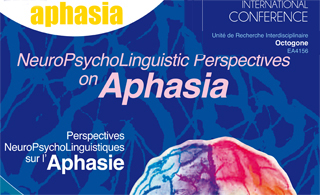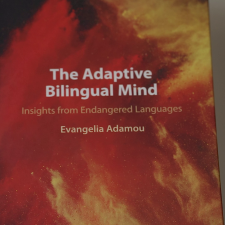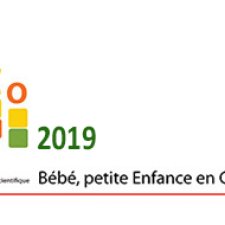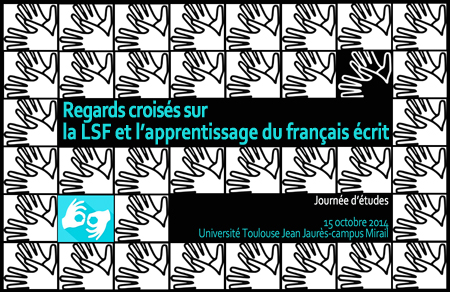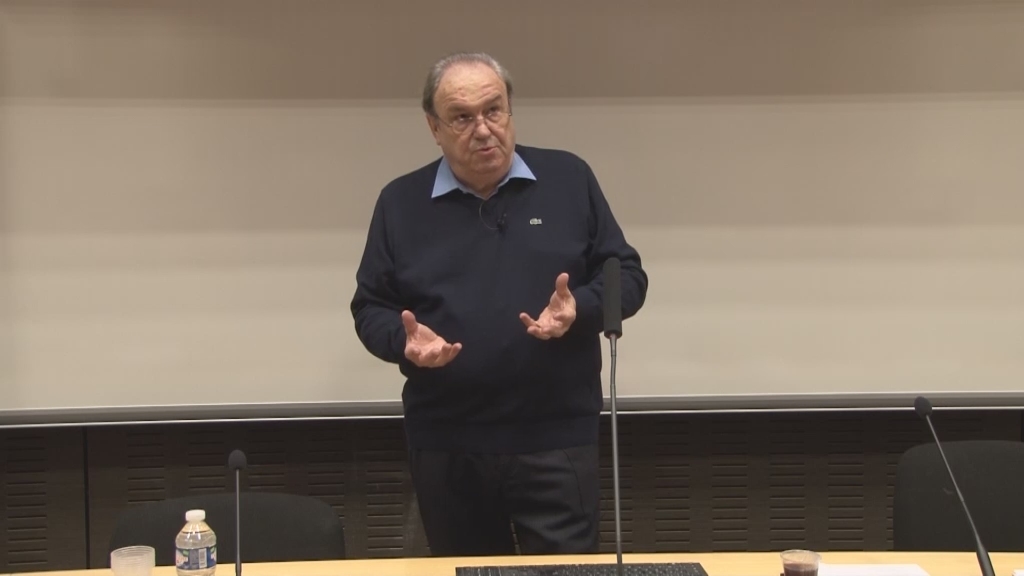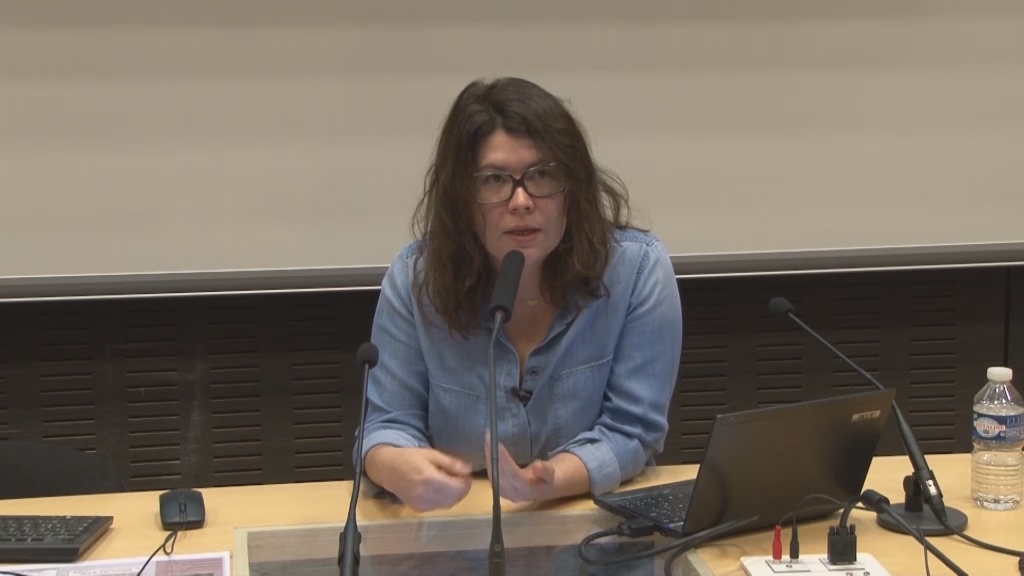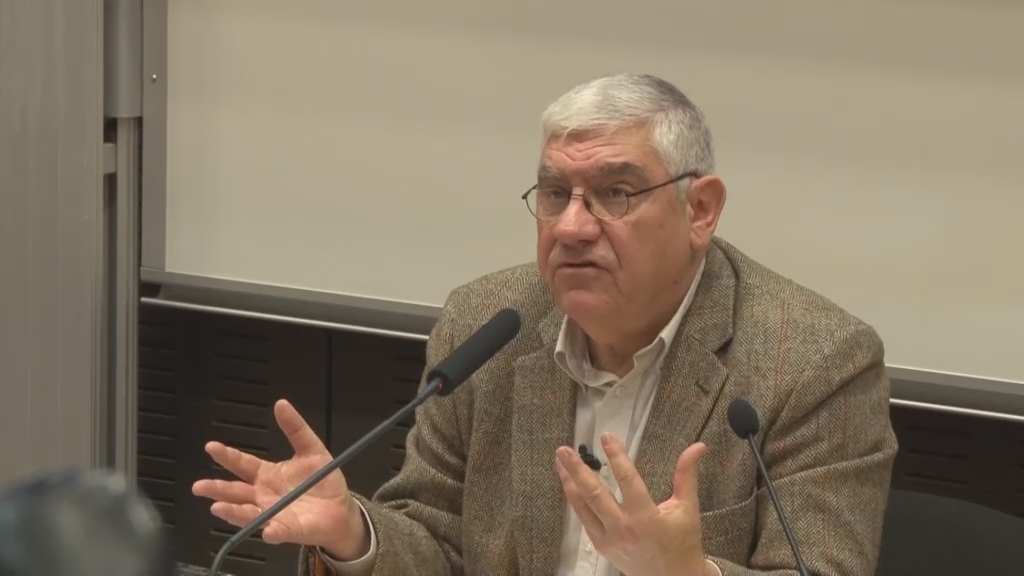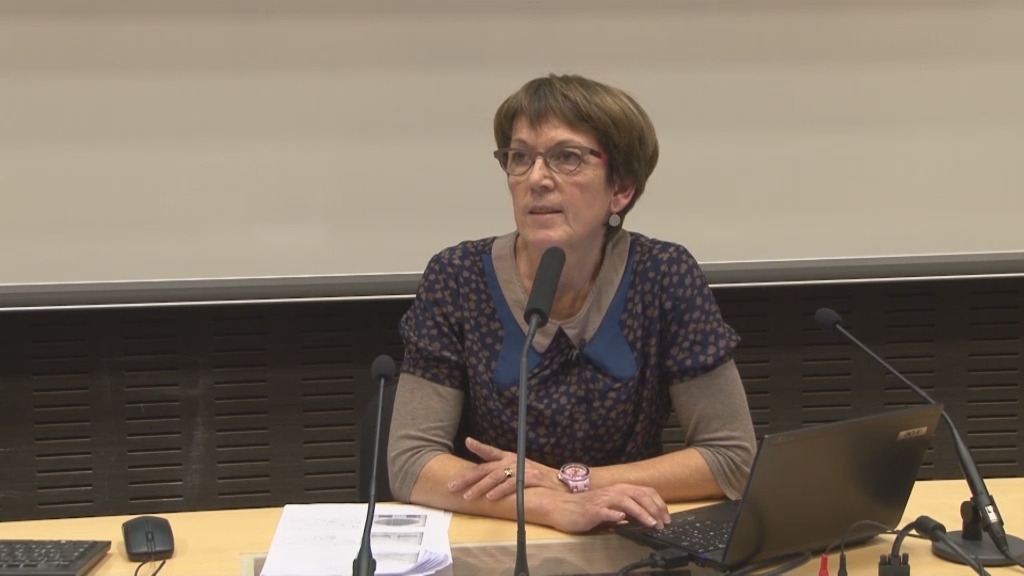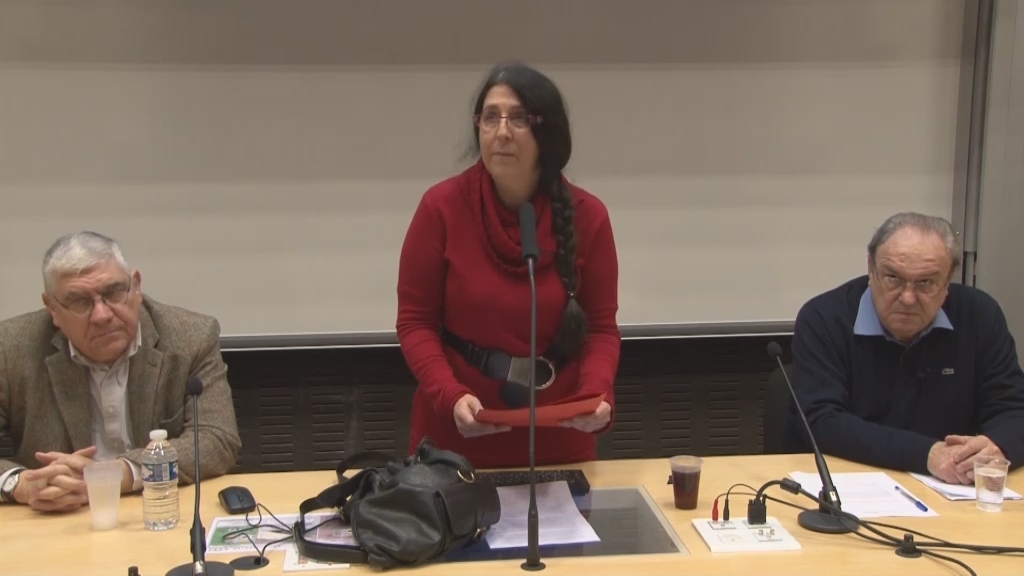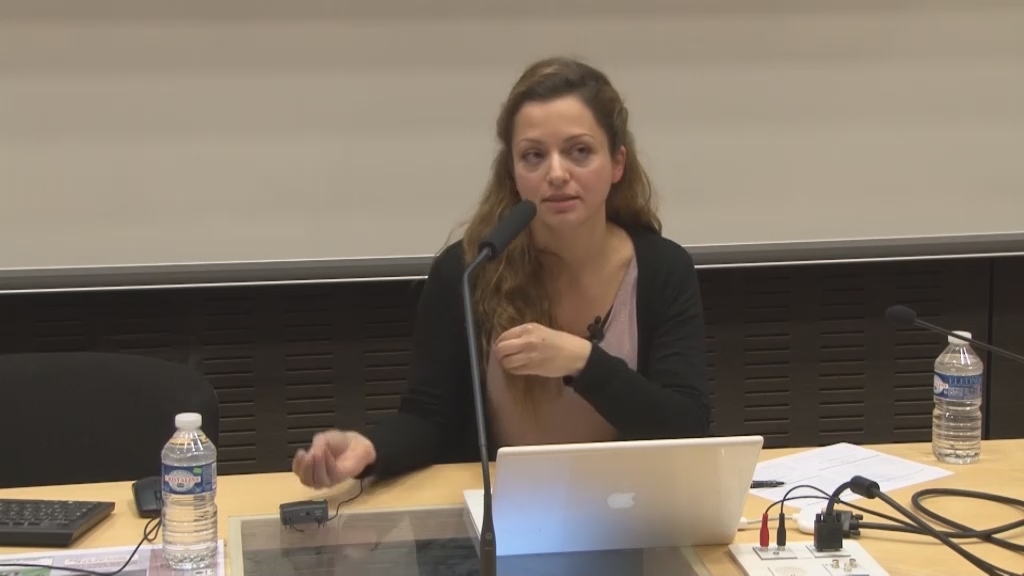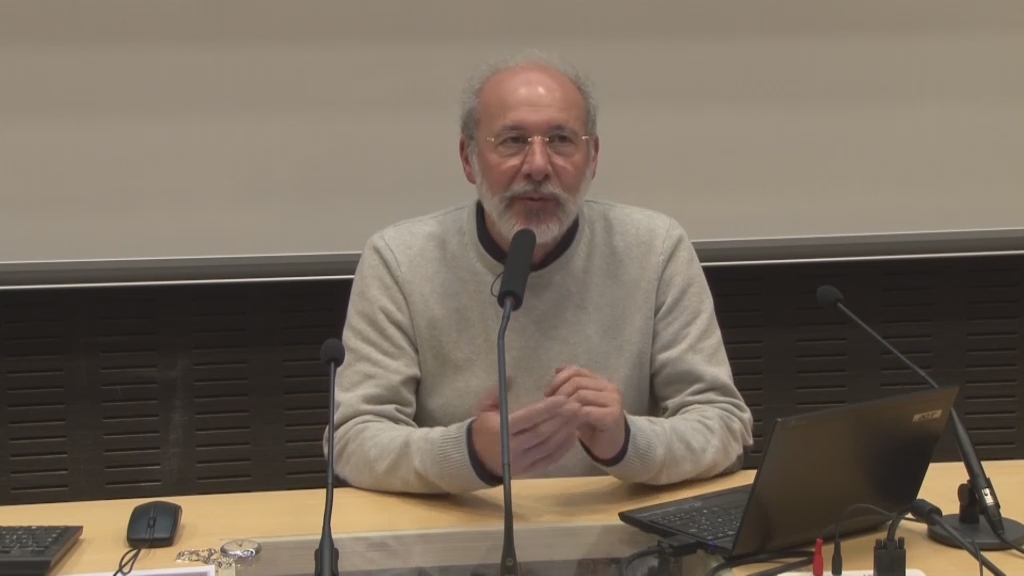Notice
Morpho-syntactic processing of regular and irregular formations in Arabic aphasia / Tariq Khwaileh
- document 1 document 2 document 3
- niveau 1 niveau 2 niveau 3
Descriptif
Morpho-syntactic processing of regular and irregular formations in Arabic aphasia / Tariq Khwaileh. In "Perspectives neuropsycholinguistiques sur l'aphasie - NeuroPsychoLinguistic Perspectives on Aphasia", colloque international organisé par l'Unité de Recherche Interdisciplinaire Octogone de l'Université Toulouse II-Le Mirail (France). Toulouse, 21-23 juin 2012.
Within the study of impaired morpho-syntax in aphasia, regular and irregular formations have received special attention. Dissociations in processing regulars and irregulars have been found in participants with aphasia (e.g. Miozzo, 2003). Ullman et al. (1997) have assumedthat irregular forms are retrieved as full entities while regular forms are compiled on-line. Therefore, the dissociation observed in aphasia is a result of selective impairment to one of these processes. In contrast, Joanisse and Seidenberg (1999) have assumed that regular and irregular forms are processed using a single mechanism, suggesting that the dissociation observed in aphasia may be reflecting different levels of impairment i.e. semantic vs.phonological. It is noteworthy that these two views are not flawless.
While findings from previous studies have confirmed certain aspects of a given model, they were inconsistent with other assumptions of the same model.These discrepancies in both models warrant further investigation in Arabic which offers a unique opportunity to study this phenomenon due to its morpho-syntactic features. Arabic words are composed of two morphemes: a consonantal root (delivering lexical meaning) and avocalic pattern (delivering syntactic information, i.e. gender and number). This feature enables morphological dissection of semantics and syntax which is a unique method, by which data from Arabic can be analyzed. The aim of this study is to investigate morpho-syntacticprocessing of regular and irregular inflected formations of Arabic plurals through unique qualitative analysis, in which syntax is isolated from lexical semantics on a surface level.
A picture-naming test (90 items) for plural formations in Arabic was developed to capture differences in the retrieval of regular and irregular plural forms. Stimuli were matched for phonological length, imageability, age of acquisition, visual complexity of stimuli, nameagreement and reaction time to naming from controls. Three participants with aphasia (RA: agrammatic production and comprehension; YA: agrammatic comprehension only; LA: agrammaticproduction only) were asked to name presented pictures with the appropriate plural form. Stimuli appeared in three conditions: dual plural (regular), sound plural (regular) and broken plural(irregular).
Double dissociation in processing regulars vs. irregulars was evident at four levels: response accuracy, reaction time, error type and form. LA and YA were better at naming regular plurals than irregular ones. RA was better at naming irregular plurals than regular ones. Error type analysis revealed patterns of morpho-syntactic errors that are governed by regularity, and omissions formed the vast majority of errors in regular plurals while substitution was the only error mechanism that occurred in irregular plurals. The dissociation was statistically significant for retrieval of vocalic patterns but not lexical meaning, suggesting that the participants’ selective impairment was an effect of the regularity of morpho-syntax. These results further suggest that irregularly inflected forms are stored while regular forms are derived, which is compatible with the dual-mechanism model (Pinker and Ullman, 2002), but not with the single-mechanism model (Joanisse and Seidenberg, 1999). The current findings yield information from Arabic that contribute to the validation of findings from previous studies, and provide a new analysis technique for data from languages with non-concatenative morpho-syntax.
Intervention / Responsable scientifique
Thème
Documentation
Bibliographie sélective
Miozzo, M. (2003). On the processing of regular and irregular forms of verbs and nouns: Evidence from neuropsychology. Cognition, 87, 101-127.
Pinker, S., & Ullman, M. (2002). The past and future of the past tense. Trends in Cognitive Science, 6, 456-463.
Ullman, M. T., Corkin, S., Coppola, M., Hickok, G., Growdon, J. H., Koroshetz, W. J., & Pinker, S. (1997). A neural dissociation within language: Evidence that the mental dictionary is part of declarative memory, and that grammatical rules are processed by the procedural system. Journal of Cognitive Neuroscience, 9, 266–276.
> Voir aussi la bibliographie générale à télécharger dans l'onglet "Documents" de la séquence vidéo d'ouverture du colloque.
Dans la même collection
-
Phonological and phonetic encoding and impairment / Marina Laganaro
LaganaroMarinaPhonological and phonetic encoding and impairment / Marina Laganaro
-
Perspectives neuropsycholinguistiques sur l'aphasie - NeuroPsychoLinguistic Perspectives on Aphasia…
Perspectives neuropsycholinguistiques sur l'aphasie - NeuroPsychoLinguistic Perspectives on Aphasia : ouverture. Colloque international organisé par l'Unité de Recherche Interdisciplinaire Octogone de
-
Entre dysfonctionnement et normalité : une perspective à partir de données anatomo‐fonctionnelles o…
DuboisCyril Michel RobertLahyaniSaoussanEntre dysfonctionnement et normalité : une perspective à partir de données anatomo‐fonctionnelles obtenues auprès de sujets sains et de sujets aphasiques / Saoussan Lahyani, Cyril Dubois. In
-
A « subtle phonetic deficit » in fluent aphasia ? An acoustic and perceptual study / Anna Marczyck
MarczyckAnnaA « subtle phonetic deficit » in fluent aphasia ? An acoustic and perceptual study / Anna Marczyck
-
Pour une approche dynamique des réponses aphasiques obtenues en dénomination d’images : apport de l…
TranThi MaiPour une approche dynamique des réponses aphasiques obtenues en dénomination d’images : apport de l’analyse qualitative / Thi-Mai Tran, in "Perspectives neuropsycholinguistiques sur l'aphasie -
-
Compounding and lexical recursion in aphasia and in Alzheimer’s disease / Zoltán Bánréti
BánrétiZoltánCompounding and lexical recursion in aphasia and in Alzheimer’s disease / Zoltán Bánréti. In "Perspectives neuropsycholinguistiques sur l'aphasie - NeuroPsychoLinguistic Perspectives on Aphasia",
-
Age of acquisition affects word retrieval in spontaneous speech produced by patients with Alzheimer…
GayraudFrédériqueBarkatMélissaAge of acquisition affects word retrieval in spontaneous speech produced by patients with Alzheimer's disease / Frédérique Gayraud, Mélissa Barkat-Defradas. In "Perspectives neuropsycholinguistiques
-
German Broca’s and Wernicke’s aphasics display similar deficits in syntactic performance / Eva Wimm…
WimmerEvaGerman Broca’s and Wernicke’s aphasics display similar deficits in syntactic performance / Eva Wimmer. In "Perspectives neuropsycholinguistiques sur l'aphasie - NeuroPsychoLinguistic Perspectives on
-
Violating canonicity in Spanish agrammatism / Silvia Martínez-Ferreiro
Martinez-FerreiroSilviaViolating canonicity in Spanish agrammatism / Silvia Martínez-Ferreiro. In "Perspectives neuropsycholinguistiques sur l'aphasie - NeuroPsychoLinguistic Perspectives on Aphasia", colloque international
-
Sentence comprehension deficits in aphasia : additional insights from impairment-specific assessmen…
HanneSandraSentence comprehension deficits in aphasia : additional insights from impairment-specific assessment / Sandra Hanne.
-
Principles of bilingual aphasia assessment and interpretation of findings / Michel Paradis
ParadisMichelPrinciples of bilingual aphasia assessment and interpretation of findings / Michel Paradis. In "Perspectives neuropsycholinguistiques sur l'aphasie - NeuroPsychoLinguistic Perspectives on Aphasia",
-
Perioperative language assessment in multilingual patients undergoing awake surgery / Barbara Köpke
KöpkeBarbaraPerioperative language assessment in multilingual patients undergoing awake surgery / Barbara Köpke. In "Perspectives neuropsycholinguistiques sur l'aphasie - NeuroPsychoLinguistic Perspectives on
Sur le même thème
-
The Adaptive Bilingual Mind
AdamouEvangeliaLa chercheuse Evangelia Adamou (LACITO) présente son ouvrage "The Adaptive Bilingual Mind" (2021, Cambridge University Press).
-
How prosody helps infants and children to break into communication
GervainJuditThe talk will present four sets of studies with young infants and children to show who prosody helps them learn about different aspects of language, from learning basic word order through
-
Socialisations langagières et inégalités scolaires / Élisabeth Bautier
BautierÉlisabethSous-tendue par la question des inégalités d’apprentissage scolaires et des habitudes langagières de l’école qui sont au cœur de ces inégalités, cette communication porte sur les modes de
-
Jacques Lordat (1773-1870) ou la naissance de la neuropsycholinguistique cognitive. Du vitalisme au…
NespoulousJean-LucJacques Lordat (1773-1870) a fait une exceptionnelle carrière, d’une cinquantaine d’années, à la Faculté de médecine de Montpellier, dont il fut un temps Doyen. Très tôt, il s’intéressa aux troubles
-
Regards croisés sur la LSF et l'apprentissage du français écrit : table ronde
Garcia-DebancClaudineRegards croisés sur la LSF et l'apprentissage du français écrit : table ronde, in Journée d'études organisée conjointement par l'École supérieure du professorat et de l'éducation (ESPE, Toulouse), le
-
02 - La neuropsycholinguistique 150 ans après Paul Broca (Crisco)
Journée d’étude : "Cerveau et Langage", présentée par Jacques FRANCOIS (Université de Caen) et Jean-Luc NESPOULOUS (Toulouse 2 et I.U.F.)
-
05 - Mémoire de travail, fonctions exécutives et aphasie (Crisco)
Journée d’étude : "Cerveau et Langage", présentée par Jacques FRANCOIS (Université de Caen) et Jean-Luc NESPOULOUS (Toulouse 2 et I.U.F.)
-
03 - L’émergence et l’évolution du langage humain du point de vue des neurosciences (Crisco)
Journée d’étude : "Cerveau et Langage", présentée par Jacques FRANCOIS (Université de Caen) et Jean-Luc NESPOULOUS (Toulouse 2 et I.U.F.)
-
06 - Troubles lexico-sémantiques dans l’aphasie : évolution des interprétations (Crisco)
Journée d’étude : "Cerveau et Langage"
-
01 - Ouverture de la journée d'étude : "Cerveau et Langage" (Crisco)
Journée d’étude : "Cerveau et Langage"
-
04 - Langage et représentation spatiale chez des locuteurs avec et sans agrammatisme : analyse des …
Journée d’étude : "Cerveau et Langage", présentée par Jacques FRANCOIS (Université de Caen) et Jean-Luc NESPOULOUS (Toulouse 2 et I.U.F.)
-
07 - Langage et mémoire : les leçons des maladies dégénératives (Crisco)
NespoulousJean-LucFrançoisJacquesJournée d’étude : "Cerveau et Langage", présentée par Jacques FRANCOIS (Université de Caen) et Jean-Luc NESPOULOUS (Toulouse 2 et I.U.F.)


